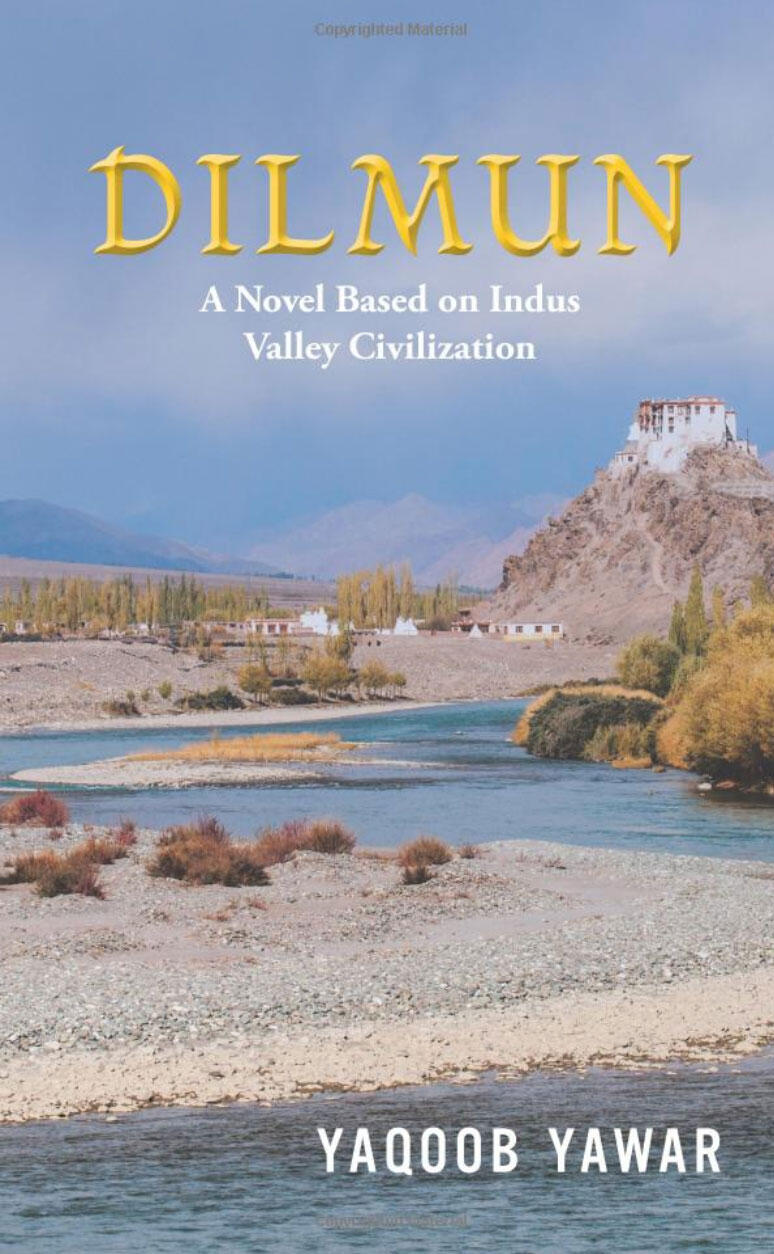There is a dearth of ancient Indus-based fiction in English; there are even fewer works in Hindi or Urdu. Yakoob Yawar's Dilmun, originally published in Urdu in 1998, is among the very few exceptions (indeed, it was the second novel ever to be set in the ancient Indus civilization, 50 years after the Hindi Murdon ka Teela by Rangeya Raghava). Now, thanks to the efforts of translator Shital Desai, and Vasant Dave, himself a fiction writer (and community manager and contributor to this website), Yawar's fast-paced, gripping drama is now available in English as well.
The story revolves around a woman and her relationship to the ruler of Dilmun (Mohenjo-daro), the terrible fate that befalls her, and the unrelenting struggle to avenge her and her people's dishonor that follows. The story of women's rights and how different city-states at the time may or may not have respected them plays a central role in a story connects it to current issues. A lot happens, often very quickly in Dilmun – there are plot-line liberties – but the whole hangs together nicely and the cast of characters are strong.
The story is what makes you turn the pages, primarily the main protagonist Devanai's single-minded purpose, not any accurate rendition of the times or people. We of course don't know enough to be sure, however rich the author's imagination. Yawar, a renowned name in Urdu literature who recently retired after a long and successful academic career at Banares Hindu University, brings a good deal of relevant background knowledge of Indian religion and stories to bear in this work. Fortunately, nothing is implausible (there are no galloping horses, for example). The potent mix of religion, politics, power, corruption and family that run through the drama seem well inline with the subcontinent's history, ancient Indus or not. Dilmun is a fine and pioneering attempt to bring to life an era that archaeology is still struggling to encase in a story.

